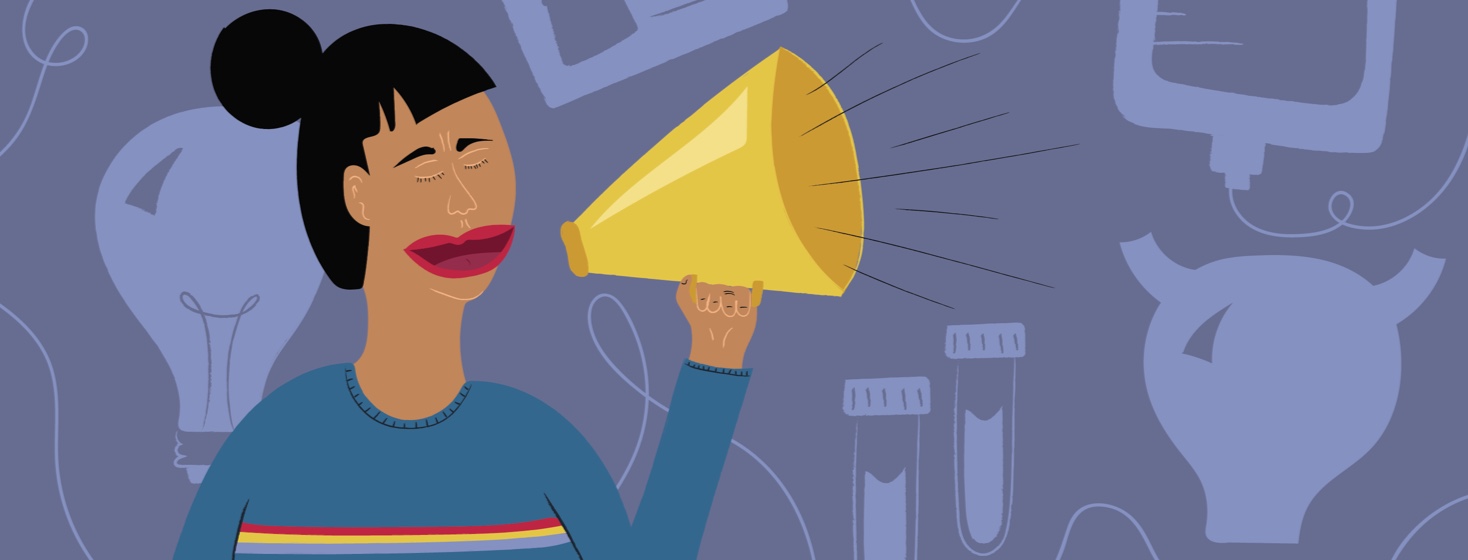Big News on Valentine’s Day for Advanced Bladder Cancer Patients
You could say 2020 delivered a sweet Valentine’s Day for bladder cancer patients. The American Society of Clinical Oncology (ASCO) held its annual Genitourinary (GU) Symposium in San Francisco at the end of last week. (In case you aren’t already familiar with it, ASCO is the professional association to which oncologists belong.)
All bladder cancer all day
And the program on Valentine’s Day was almost exclusively devoted to bladder cancer. This is huge because just a few years ago, this annual conference included only a few hours of discussion about bladder cancer research. It was greatly eclipsed by prostate cancer discussions.
There wasn't much to talk about up until now
Sadly, in those days, there just wasn’t much to talk about regarding bladder cancer. Treatments hadn’t changed much in several decades: BCG then surgery, if needed, for earlier-stage disease or platinum-based chemotherapy for advanced disease. And survival rates were poor. I’ve written before about the rapidly-evolving treatment landscape. And ASCO 2020 continued to demonstrate that.
The biggest story coming out of ASCO-GU 2020
One of the most exciting stories coming out of the conference was a study with stunning results for advanced-disease patients. The study looked at 45 patients who were not eligible for cisplatin. In the past, these patients would have received the better-tolerated alternative, carboplatin. My first husband, Ahmad, received carboplatin. His cancer did not respond to it at all.
Positive findings for people with advanced bladder cancer
But in this study, 73.5% of the patients had a partial response (57.8%) or a complete response (15.6%) to the combination of PADCEV and Keytruda. That is a very high response rate, especially for advanced-disease patients.
And it did not matter whether the patients had a high expression of PD-1 or PD-L1 proteins. That is significant. Immunotherapy drugs (of which Keytruda is one) have generally worked better for certain patients with high expression of those proteins. That’s why some patients have responded remarkably well to them and others, not at all.
A breakthrough therapy
PADCEV had just been approved by the F.D.A. in December. And on February 19, the F.D.A. granted Breakthrough Therapy designation to the combination of PADCEV and Keytruda. (The Breakthrough designation expedites the review of treatments such as this that have potentially life-saving possibilities. Such status is granted when early clinical evidence suggests substantial improvement over existing treatments.)
2 more exciting, relevant facts to note
Responses to the drug combination were deemed “rapid” by investigators, meaning 88% of patients had demonstrated a response by the first assessment after starting the drug. Also, the responses were notable because 91% of the patients were deemed to be some of the sickest with the poorest prognosis.
Early data on the duration of the response and the time patients go without the disease progressing seems promising but more data will tell us more down the road.
The rapidly evolving landscape is good news for today and tomorrow’s patients
I have written before about how much and how fast this landscape is changing for patients and frankly, I just can’t write about it enough. It always feels somewhat bittersweet as my first husband, Ahmad, died just on the cusp of all this rapid change (after decades of stagnation on the treatment front).
But I am thrilled for today’s and tomorrow’s patients. I dare to hope that bladder cancer may become one of those well-managed “chronic condition” cancers. So much has happened and the pace seems to be accelerating.

Join the conversation